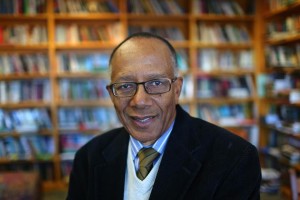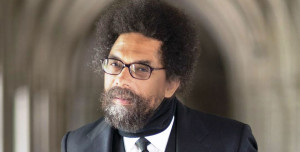Most roads do not lead to Rome-that is the situation, European: recognize it (Sloterdijk, Bubbles, p. 75).
Dr. Christopher Davis argues in her book Savage Minds that an ethnocentric, colonial mentality still shapes the way we think about Africa. She writes, “We are subject to “African exceptionalism”: a sense that Africa is so different, so impossible to organise, that any undertaking is practically pointless. It is the sense that African people are unruly as citizens and irresponsible as politicians and bureaucrats. Africa’s state is always behind. We never perceive it as leading the way. Economically and politically, Africa is held back, not yet caught up. Exceptionalism heightens the temptation to look at the continent as a problem or an illness.” As with all things Black in the white racial frame, the “exceptionalism” here is not meant to demarcate what is superior or best, but lowly and worthless. The hopelessness traditionally associated with African exceptionalism through white supremacy can be “turned on its head.” A consideration of ironic or hidden relations reveals just how invaluable and treasured the Black experience is for the western narrative of freedom and equality. Obviously, the narrative cannot rely on the dehumanizing, bloody facts of colonialism but strives to tell the story with an emphasis on the openness and unity of all peoples. Who can symbolize this better than the Black and Brown races? Isn’t it the case that the disinherited of the world—those to whom Jesus referred when he said the “meek shall inherit the earth”—have shown us how to evade bondage and to be loathed by neither self-hate nor hate for others?
It was Harvard sociologist Orlando Patterson who argued that Africans were the first truly modern people given their exposure to translocation by force. The Middle Passage of the Atlantic slave trade is the ironic beginning of the modern age through the perfection of violent measurement. It was a deed of forbidden fruits. Just as Original Sin is the unrepeatable transgression to mark the origin of the world, “the dossier on the Modern Age reads like a massive indictment of imperial incorrectness. The only solace offered by a study of its contents is the thought that these deeds and misdeeds have become unrepeatable. Perhaps globalization, like history as a whole, is the crime that can only be committed once” (Sloterdijk, Globes, 2014, 904-905). Out of this arose a glaring paradox that those of African-descent will symbolize the exceptional people of our epoch (like the diaspora of the Hebrews) and most represent what it means to be modern. I will describe what this means using both the logics of distribution and, what I call the non-locational principle, as central themes that characterize the robust pluralism captured in modern experience. In particular, it is in the ethos of the African narrative that we can discover a non-triumphalist, non-romantic story of hope and salvation—one that embodies a polyethnic people, engaged in multi-local rituals for the sake of a unique and radical eschatological equality or solidarity with all of the world’s races. Under this condition, to be Black literally means, “to share with and encompass the place of the other,” or to become what otherwise one was not meant to be. This self-transcendence is demonstrated to varying degrees among marginalized and suppressed groups, and is employed as a cultural symbol of freedom and personal achievement.
Our age can be characterized as one largely “on the move”—steadfast in its transitory nature. Given this assorted agility, German philosopher, Peter Sloterdijk, argues that we move within the tension between the desert and nomad poles of existence. While the former manifest the phenomena of a “place without a self,” the latter symbolizes a “self without a place.” I believe this to be an interesting way to consider the hyper-mobility that characterizes contemporary ways communication, transportation, or information is distributed. Examples of places without selves include prisons, shopping centers, airports, the Internet, and so on, while refugees, slaves, or cripples represent selves without places. According to Sloterdijk, the dominant feature of globalization is this unique unraveling of the self’s reliance on the place and vice versa. Why have philosophers of all stripes ignored this? The preoccupation with time at the expense of spatial concerns is one of the reasons for this neglect in western philosophy. Another deficiency stems from a reliance on a logics of production based around an economy of ownership, compared with the logics of distribution, which relies on an economy of usage. Traditional cultural structures of the post-Enlightenment age have relied on the ontology of objects or things that a “producer” owns or possesses what she produces. This logic depends upon the “locational principle,” but once we consider the unscrewing of selves and places—a main feature of our virtualized, data processing age—then we move largely from producers to users. Under the logics of distribution we “share” and partake more than we possess or own. Under the metrics of distribution, territory and location become negligible!
Compared with traditional rituals and identities, which are founded on the “locational principle” and its obsessive equation of self and place, our own virtualized, trans-local and poly-ethnic rituals convey that locations are not primary for selfhood nor are places in need of rooted selves. We share the rituals of movies, music, sports, video games, etc. more than we have sole-possession of them today. Efforts to claim ownership will continue to fall of deaf ears in thin-walled societies, playing on hybrid peripheries. Our age signifies a time in which the self and place are coming into each is own! Since historically they have always been identified or thought to encompass each other, neither selves nor places were independently established. Only with the current breaking apart do we begin to experience the emergence of what their autonomous values and purposes may entail. Both the self and place can move about in wider realms of experience since their identities and functions no longer rely on their intersection. The interdependence between selves and places will continue to grow stronger through higher levels of possible contrasts. As we break from territorial reason, we recognize how much we share and use the same rituals and this is a sign that the world is catching up with the denationalized, multi-local loyalties of Black and Brown selves.
African-descended peoples symbolize the love of freedom to the world and, as Patterson said, “they are more American than Americans.” Afro-American exceptionalism stems from the radical uprootedness Blacks have endured historically as wandering selves, all while being representative of a continent that has been deemed an unworthy place for any semblance of spirit to reside. Ever since Hegel said it, westerners and easterners alike have believed that Africa is a kind of “place without a self.” An uninhabitable, violent and dark place in the eyes of most, Africa represents the future frontier of the unknown—Americans know more about space than they do Africa. This is the case despite the fact that most western nations continue to rely heavily on African labor and those Promethean modern sources of energy. We continue to be oblivious to our reliance on this sacred soil in so many respects. It is disheartening to hear that the one likely contribution Africa has given to the world was only in the beginning, as the birthplace of Homo sapiens. And, today, Africans are not seen as much more than just potential allies or enemies in some foreign policy or free trade agenda. They speak to our age in a unique and constructive way that symbolizes the love for freedom. How are African Americans making a contribution to the world in a way other than hip-hop, sports, or comedy? We cannot be simply distracted by the celebrity of a Michael Jackson, Beyoncé, or Obama superstar when this freedom is expressed indiscriminately. It cannot be merely commercialized and cannot be thought of in terms of products. Rather it pervades the way in which we confidently and coolly culturally interact in a much wider and riskier world.
Let me stress that I believe there is nothing wrong with entertainment but they only speak to an aesthetic or economic value and purpose, whereas we want to stress that Afro-American selves manifest a cultural worth beyond this! Minorities do not need to win Oscars in order to display the value of Afro-American exceptionalism. For the African alone most starkly epitomizes the cultural symbol of freedom that marks the ethos of our age—the experience of “selves without places and places without selves.” The African-related self symbolizes the shared life of a multifariously mobilized globe, through the independence of the self from the place and vice versa. This unique feature of our age points to a real ongoing cultural contribution that the African people contribute to the freedom and hope of the world. We all know of the ills racism presents, but we are too often eager to identify the disease without suggesting a cure. It is possibly insensitive and shortsighted to point out immunodeficiency without offering any measures of immunization. Afro-American exceptionalism seeks to be a non-romantic, non-triumphalist narrative, which points to the active, positive role that African-related peoples have contributed to the world. Why, in the perception of the wider world, is a man of African descent in a better position to symbolize the American love of freedom than is the man of privileged, European background? Is it not ironic how African slaves can be imagined as more “American” (in the sense of the ideal, not the place), than their Anglo-European captors; at least when it comes to evoking attitudes of openness and freedom in a deeper sense, than their captors who sought to take away their liberty through bondage? In Afro-American exceptionalism we find not just irony in the ordinary sense, but a hidden relation, a place where supposed past necessities are exposed as contingencies propped up by wrong-doing.
Afro-American exceptionalism does not work in vain, on behalf of some false superiority but by way of what Alfred North Whitehead called “bold humility.” We need to be humble by keeping an open-minded approach, while being bold in our resolve to aim for new ways to address old problems. Drawing on Cornel West’s distinction between “strong” and “weak” exceptionalisms, Afro-American exceptionalism is more in tune with the latter. It emphasizes the sociological “values, modes of behavior, or gifts acquired from their endurance of political oppression, social degradation, and economic exploitation” (Prophesy Deliverance! An Afro-American Revolutionary Christianity, 1982, p. 70). It is with humble boldness that Black people want to not be better than, but only equal with all. For the white man is only now beginning to be put in the humble position of realizing what it means to live without knowing one’s history or with the desire to turn loose of it. Here they have much to learn from their Black and Brown brothers and sisters. Whitehead explains in the following quote just how we are to rely on the adventures with “others,” or foreign places and peoples as “godsends” for our own survival and enlivening:
When man ceases to wander, he will cease to ascend to the scales of being. Physical wandering is still important, but greater still is the power of man’s adventures—adventures of thought, adventures of passionate feeling, adventures of aesthetic experience. A diversification among human communities is essential for the provision of the incentive and material for the odyssey of the human spirit. Other nations of different habits are not enemies: they are godsends.–Science and the Modern World (1925)



